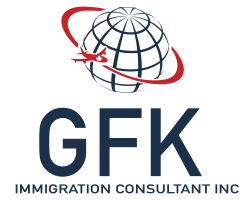
BC PR Pathways for International Students
The closure of the British Columbia Provincial Nominee Program’s (BC PNP) graduate streams and the indefinite suspension of three planned replacement streams in 2025 have stalled the dream of securing Canadian permanent residency (PR) as an international graduate in British Columbia (BC).
The federal government’s 50% reduction in PNP nomination allocations has left many graduates looking for other ways to remain in Canada permanently.
But don’t lose hope—there are still robust options available to achieve PR.
From the Canadian Experience Class (CEC) to the Atlantic Immigration Program (AIP), we’ll break down eligibility, application processes, and expert tips to help you get your permanent residency in 2025.
Table of Contents
Why the BC PNP Graduate Streams Closed: Impact on Permanent Residency
The BC PNP has long been a go-to pathway for international graduates seeking PR in British Columbia.
However, significant changes in 2024 and 2025 have reshaped the program:
Closure of Existing Streams: The International Graduate Stream closed on November 26, 2024, and the International Post-Graduate Stream (IPG) closed on January 7, 2025.
Suspended New Streams: In March 2024, the BC PNP announced three new streams—Bachelor’s, Master’s, and Doctorate—set to launch in January 2025.
However, on April 14, 2025, these streams were indefinitely suspended due to reduced federal nomination allocations.
Waitlisted Applications: IPG applications submitted after September 1, 2024, are waitlisted, with no clear timeline for processing.
Reduced Nominations: The federal government cut BC’s PNP allocation from 8,000 in 2024 to 4,000 in 2025, while BC started 2025 with a backlog of 5,200 applications.
This forced the province to prioritize existing applications and limit new ones to high-impact sectors like healthcare.
These changes reflect Canada’s shift toward aligning immigration with labour market needs, leaving international graduates to explore alternative PR routes.
Below, we outline the top pathways available in 2025.
Top Permanent Residency Pathways for International Graduates
International graduates in BC have several viable PR options outside the BC PNP.
Below are six key pathways, their eligibility criteria, and how to apply, ensuring you can choose the best route for your circumstances.
BC PR Pathways for International Students
1. Canadian Experience Class (CEC) – Express Entry
The Canadian Experience Class (CEC), part of the Express Entry system, is a popular PR pathway for graduates with Canadian work experience.
It’s ideal for those with strong profiles under the Comprehensive Ranking System (CRS).
Eligibility Criteria:
Work Experience: At least 1 year of skilled work experience in Canada (NOC TEER 0, 1, 2, or 3) within the last 3 years.
Language Proficiency: Canadian Language Benchmark (CLB) 7 for TEER 0 or 1 jobs; CLB 5 for TEER 2 or 3 jobs.
Intent to Reside: Plan to live outside Quebec.
Application Process:
Obtain a Post-Graduation Work Permit (PGWP): Most graduates from Designated Learning Institutions (DLIs) qualify for a PGWP, allowing work experience accumulation.
Create an Express Entry Profile once you complete 1 year of work on PGWP: Submit your education, work experience, language test results (e.g., IELTS), and other details.
Calculate Your CRS Score: Use tools like CanadaVisa+ to estimate your score based on age, education, language skills, and work experience.
Receive an Invitation to Apply (ITA): If your CRS score is competitive (recent cut-offs: 521–542 in 2025), you’ll receive an ITA.
Submit PR Application: Provide documents like police certificates, medical exams, and proof of funds within 60 days.
Category-Based Draws: If your CRS score is low, you may be eligible for category-based draws with:
- French Proficiency: CLB 7 in all four language abilities.
- In-Demand Occupations: 6 months of experience in agriculture, education, healthcare, STEM, or trades within the last 3 years.
Processing Time: Approximately 6 months for Express Entry applications after receiving an ITA.
Tips for Success:
- Maximize your CRS score by improving language skills or gaining additional work experience.
- Stay updated on Express Entry draw cut-offs via the IRCC website.

2. BC PNP – Health Authority Stream
The Health Authority Stream is the only BC PNP pathway open to skilled workers in 2025, specifically targeting frontline healthcare professionals.
Eligibility Criteria:
Employment: Full-time, indeterminate job offer from a BC public health authority.
Occupations: Eligible roles include:
- Any NOC starting with “3” (health occupations).
- Social workers (NOC 41300).
- Community service workers (NOC 42201).
- Therapists in counseling (NOC 41301).
Employer Support: The health authority must endorse your application.
Application Process:
-
- Secure a Job Offer: Obtain a full-time position with a BC health authority.
- Submit Application: Apply directly via BCPNP Online (no registration required).
- Receive Nomination: If approved, use the nomination to apply for PR through IRCC.
- Federal PR Application: Submit documents like police certificates and medical exams.
Processing Time: Varies; typically 3–6 months for provincial nomination, plus 6–12 months for federal PR.
Tips for Success:
- Network with BC health authorities to secure eligible roles.
- Ensure your employer is willing to support your application, as this is mandatory.
3. Rural Community Immigration Pilot (RCIP)
The Rural Community Immigration Pilot (RCIP) targets graduates willing to settle in rural Canadian communities, including three in BC.
Eligibility Criteria:
Job Offer: Full-time, permanent job offer from a designated employer in a participating community.
BC Communities:
- West Kootenay
- North Okanagan Shuswap
- Peace Liard
Education: Canadian high school diploma or equivalent (via Educational Credential Assessment).
Language: CLB 4–6, depending on the job’s TEER level.
Work Experience: 1 year of related work experience in the past 3 years (waived for local public institution graduates).
Application Process:
-
- Secure a Job Offer: Contact employers in participating communities.
- Apply for PR: Submit your application directly to IRCC with the job offer and community endorsement.
- Provide Documents: Include language test results, police certificates, and medical exams.
Processing Time: Approximately 12–18 months.
Tips for Success:
- Research job opportunities in BC’s rural communities early.
- Graduates from local public institutions may bypass work experience requirements, so check eligibility.
4. Francophone Community Immigration Pilot (FCIP)
The Francophone Community Immigration Pilot (FCIP) is ideal for French-speaking graduates with job offers in designated communities, including Kelowna, BC.
Eligibility Criteria:
Job Offer: Full-time, permanent job offer from a designated employer in a participating community.
French Proficiency: CLB 5 in all four language abilities.
BC Community: Kelowna.
Education: Canadian high school diploma or equivalent.
Application Process:
Processing Time: Approximately 12–18 months.
Tips for Success:
- Improve your French skills to meet CLB 5 requirements.
- Network with Kelowna employers to secure eligible job offers.
5. Other Provincial Nominee Programs (PNPs)
If the BC PNP isn’t an option, other provinces offer PNP streams tailored for international graduates.
Each province has unique requirements, often prioritizing those with ties to the region.
Popular PNP Streams for Graduates:
-
- Ontario Immigrant Nominee Program (OINP):
- International Student Stream: Requires a job offer in a skilled occupation (TEER 0, 1, 2, or 3) and graduation from an Ontario DLI.
- Ontario Immigrant Nominee Program (OINP):
- Alberta Advantage Immigration Program (AAIP):
- Alberta Opportunity Stream: Targets graduates with work experience and a job offer in Alberta.
- Saskatchewan Immigrant Nominee Program (SINP):
- International Graduate Entrepreneur Category: For graduates starting businesses in Saskatchewan.
- Manitoba Provincial Nominee Program (MPNP):
- Career Employment Pathway: For graduates with job offers in Manitoba.
Eligibility Criteria (General):
-
- Education: Degree or diploma from a DLI.
- Job Offer: Often required, depending on the stream.
- Work Experience: Varies; some streams require 6–12 months.
- Intent to Reside: Strong ties to the province (e.g., work, study, or family).
- Language: CLB 4–7, depending on the stream.
Application Process:
- Research Streams: Identify eligible streams via provincial immigration websites.
- Secure a Job Offer: Move to the province and gain work experience to strengthen ties.
- Submit Expression of Interest (EOI): For EOI-based PNPs, enter a pool and await an invitation.
- Apply for Nomination: Submit documents like job offers, language tests, and proof of ties.
- Federal PR Application: Use the nomination to apply for PR through IRCC.
Processing Time: 3–6 months for nomination; 6–18 months for federal PR.
Tips for Success:
- Relocate to your target province to build ties (e.g., work or rent a home).
- Use tools like INC NEWS AI CHATBOT to assess eligibility for enhanced PNP streams linked to Express Entry.
6. Atlantic Immigration Program (AIP)
The Atlantic Immigration Program (AIP) offers PR to graduates with job offers in Atlantic Canada (New Brunswick, Newfoundland and Labrador, Nova Scotia, or Prince Edward Island).
Eligibility Criteria:
Job Offer: Full-time, non-seasonal job offer from a designated employer in an Atlantic province.
Education: Degree, diploma, or certificate from a DLI.
Work Experience: Not required if you graduated within the last 24 months.
Language: CLB 4–5, depending on the job’s TEER level.
Provincial Endorsement: The province must endorse your job offer.
Application Process:
- Secure a Job Offer: Contact designated employers in Atlantic provinces.
- Obtain Endorsement: Work with the employer to get provincial endorsement.
- Apply for PR: Submit your application to IRCC with the job offer, endorsement, and supporting documents.
- Optional Work Permit: Apply for an employer-specific work permit to start working while your PR application is processed.
Processing Time: Approximately 12–18 months.
Tips for Success:
- Research designated employers via provincial immigration websites.
- Graduates within 24 months of completing a 2-year program are exempt from work experience requirements.
BC PR Pathways for International Students.
Why Were the BC PNP Streams Delayed?
The suspension of BC PNP’s new graduate streams stems from federal immigration policy changes:
Reduced PNP Targets: The 2025 Immigration Levels Plan cut PNP admissions from 110,000 in 2024 to 55,000, halving BC’s allocation from 8,000 to 4,000 nominations.
Application Backlog: BC started 2025 with 5,200 pending applications, exceeding its nomination capacity.
Prioritization Strategy: BC is using its 4,000 nominations to process existing applications and accept ~1,100 new applications from healthcare workers, entrepreneurs, and high-impact skilled workers.
These constraints reflect Canada’s focus on addressing labor shortages and managing immigration volumes, but they’ve limited options for international graduates.
How to Choose the Right PR Pathway
With multiple options available, selecting the best PR pathway depends on your circumstances.
Consider these factors:
Location Preference: Do you want to stay in BC (e.g., Health Authority Stream, RCIP, FCIP) or relocate to another province (e.g., AIP, other PNPs)?
Occupation: Healthcare professionals have a direct BC PNP option, while STEM or trades workers may qualify for Express Entry category-based draws.
Language Skills: French speakers can leverage the FCIP or Express Entry’s French category.
Work Experience: CEC and PNPs often require 6–12 months of experience, which you can gain via a PGWP.
Timeline: Express Entry is faster (6 months) than pilots or PNPs (12–18 months).
Decision-Making Steps:
Assess Eligibility: Use tools like CanadaVisa+ or IRCC’s eligibility checker.
Research Job Opportunities: Target in-demand sectors or designated employers.
Consult an Expert: Work with a Regulated Canadian Immigration Consultant (RCIC) for complex cases.
Plan Finances: Budget for fees (e.g., $1,325 for Express Entry, $500–$1,500 for PNPs) and third-party costs (language tests, medical exams).
Tips for a Successful PR Application
To boost your chances of securing PR, follow these expert tips:
Start Early: Apply for a PGWP immediately after graduation to gain Canadian work experience.
Improve Language Scores: Higher CLB levels (e.g., 7–9) increase your CRS score or PNP eligibility.
Network Strategically: Connect with employers in healthcare, rural communities, or Atlantic provinces.
Stay Compliant: Maintain valid temporary status (e.g., study permit, PGWP) to avoid complications.
Monitor Policy Changes: Check IRCC and provincial websites for updates on nomination quotas or stream openings.
Hire a Professional: An RCIC can navigate complex requirements and improve your application’s strength.

Your Path to Canadian Permanent Residency in 2025
The closure of BC PNP’s graduate streams and the suspension of new streams in 2025 have made PR more challenging for international graduates in British Columbia.
However, pathways like the Canadian Experience Class, Health Authority Stream, Rural and Francophone Pilots, other PNPs, and the Atlantic Immigration Program offer viable routes to achieve your Canadian dream.
By leveraging a PGWP, gaining work experience, and targeting in-demand sectors, you can position yourself for success.
Start planning today—assess your eligibility, secure job offers, and stay informed about immigration updates.
For detailed guidance, visit the IRCC website or consult a Regulated Canadian Immigration Consultant.
Your journey to Canadian PR is still within reach, but it is highly competitive.
BC PR Pathways for International Students
Contact us today to explore the possibilities.
GFK Immigration
Gboyega Esan RCIC R708591
Phone: +1 (647) 225-0092
#studyincanada #studyabroad #canada #studyinuk #studyinaustralia #ielts #studentvisa #studyinusa #studyvisa #immigration #canadavisa #visa #education #internationalstudents #overseaseducation #study #canadaimmigration #highereducation #studyoversea
